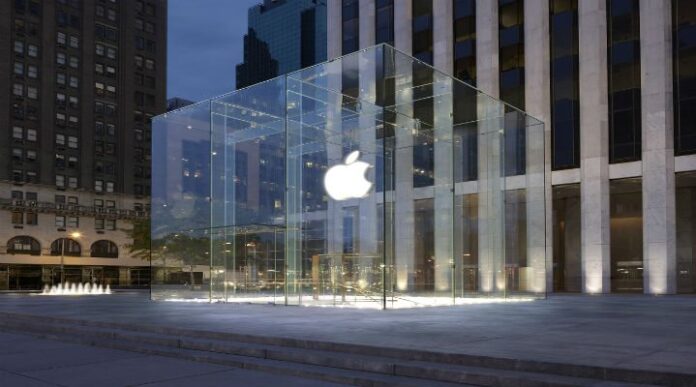Apple shipped a record 78.3 million iPhones during the fourth quarter of 2016 as existing customers upgraded to the iPhone 7 and Android users made the move to iOS. CEO Tim Cook dismissed concerns about a maturing smartphone market, saying that he thinks the market is still “in the early innings,” with plenty of room for innovation in the future.
The company saw double digit year-on-year iPhone sales growth in the U.S., Canada, Western Europe, Brazil, Turkey, Central Europe and Eastern Europe. Sales in Greater China were down 12%, but down just 8% in constant currency, the company said. China is Apple’s biggest market for the iPhone.
The fourth quarter, which is Apple’s fiscal first quarter, was 14 weeks long for the company this year, and Apple said this contributed to its blockbuster results and helped offset some of the “headwind” created by a strong dollar. (A strong dollar hurts Apple because the company converts into overseas revenue into dollars.)
Revenue for the quarter was a record $78.4 billion, and $54.3 billion of that came from iPhone sales. Apple ended the quarter with $246 billion in cash and marketable securities, more than 95% of which is outside the United States.
Apple’s offshore cash was the subject of the first analyst question on the company’s earnings call. Morgan Stanley’s Katy Hubert asked CEO Tim Cook if he thought Apple would be able to bring the cash back into the United States without paying a hefty tax bill. She also wanted to know if the company would use the cash to acquire original content. Cook said that both of these were possibilities.
“I am optimistic given what I’m hearing that there would likely be some sort of tax reform this year, and it does seem like there are people in both parties that would favor a repatriation as part of that,” said Cook “I think it would be good for the country and good for Apple. … What we would do with that, let’s wait and see. But as I’ve said before, we are always looking at acquisitions. We have acquired 15-20 companies a year for the last four years. We look for companies of all sizes. There’s not a size that we would not do. … It’s more about the strategic value.” Cook then responded to the question about original content.
“In terms of original content we have put our toe in the water with doing some original content with Apple Music,” he said. “We are learning a lot about the original content business and thinking about ways that we could play in that.”
Later during the call, Cook fielded a question about the company’s $1 billion lawsuit against Qualcomm. He said that he dislikes litigation and that Apple chose this path as a last resort.
“We didn’t see another way forward,” Cook said. “They were insisting on charging royalties on technology that they had nothing to do with. The more we innovated, the more money Qualcomm would collect for no reason and the more expensive it would be for us to innovate. … It’s like buying a sofa and you charge somebody a different price depending on the house it goes into.”
“In the end I think common sense will prevail and the courts will see it for what it is,” Cook said. He also said he thought it would be great if the dispute with Qualcomm could be resolved without litigation, but that he’s not optimistic about that.
Follow me on Twitter.

